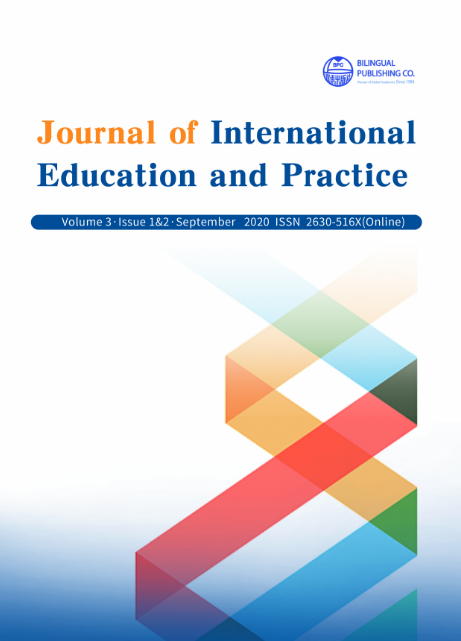 584 (Abstract)
584 (Abstract)
 48 (Download)
48 (Download)Abstract: Using data from the General Social Survey of Wuhan in 2014, this paper designs three paths to analyze the direct and indirect effects between education and perception of distributive justice income. The first path explores whether education directly affects people’s feeling of distributive justice. The second path connects education to socioeconomic status in to determine... More
 499 (Abstract)
499 (Abstract)
 47 (Download)
47 (Download)Abstract: Flipped classroom is an innovative instructional method. Recent technological developments have given rise to the popularity of flipped classroom. This study reports the findings of a questionnaire survey that investigates learners’ perceptions of flipped EFL (English as a Foreign Language) classroom, with a particular focus on their self-perceived learner engagement. The results of the study... More
 590 (Abstract)
590 (Abstract)
 45 (Download)
45 (Download)Abstract: Many Asian international students face adjustment challenges as they live and study in the United States (US). While it is largely unrecognized in the West, collectivist spirituality is an essential part of Asian cultures and functions as a potent source of resilience. This article, therefore, explores spirituality and describes how it functions as a... More
 650 (Abstract)
650 (Abstract)
 77 (Download)
77 (Download)Abstract: This study aims to develop a valid instrument measuring personal and social responsibility in physical education settings that is suitable for Chinese high school students age 14 and above. This instrument consists of eight aspects, which builds upon the levels of responsibility in Hellison’s (2011)[9] Teaching Personal and Social Responsibility Model (TPSR). The eight... More
 530 (Abstract)
530 (Abstract)
 33 (Download)
33 (Download)Abstract: In the United States, approximately one in eight (13 percent, or 30 million) individuals aged 12 years or older has bilateral hearing loss. When unaddressed and untreated, hearing loss is associated with and contributes to other significant health issues; specifically, social isolation, depression, stress, and anxiety, incidental falls, dementia and impaired cognition, and reduced quality... More
 556 (Abstract)
556 (Abstract)
 38 (Download)
38 (Download)Abstract: In the current scenario of rapid expansion of higher education, it becomes imperative to study the dynamic factors underlying quality education, student motivation and learning outcomes. Most of the literature available as on date are predominantly based on western studies, where the individual’s personal achievement, autonomy, control, power are considered to be most important. But... More



